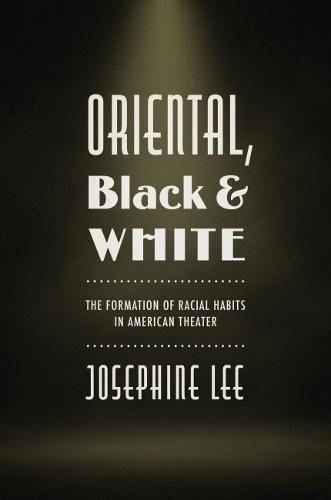Overview
In this book, Josephine Lee looks at the intertwined racial representations of nineteenth- and early twentieth-century American theater. In minstrelsy, melodrama, vaudeville, and musicals, both white and African American performers enacted blackface characterizations alongside oriental stereotypes of opulence and deception, comic servitude, and exotic sexuality. Lee shows how blackface types were often associated with working-class masculinity and the development of a nativist white racial identity for European immigrants, while the oriental marked what was culturally coded as foreign, feminized, and ornamental. These conflicting racial connotations were often intermingled in actual stage performance, as stage productions contrasted nostalgic characterizations of plantation slavery with the figures of the despotic sultan, the seductive dancing girl, and the comic Chinese laundryman. African American performers also performed common oriental themes and characterizations, repurposing them for their own commentary on Black racial progress and aspiration. The juxtaposition of orientalism and black figuration became standard fare for American theatergoers at a historical moment in which the color line was rigidly policed. These interlocking cross-racial impersonations offer fascinating insights into habits of racial representation both inside and outside the theater.
Full Product Details
Author: Josephine Lee
Publisher: The University of North Carolina Press
Imprint: The University of North Carolina Press
Dimensions:
Width: 15.30cm
, Height: 2.50cm
, Length: 23.10cm
Weight: 0.363kg
ISBN: 9781469669625
ISBN 10: 1469669625
Pages: 344
Publication Date: 20 September 2022
Audience:
Professional and scholarly
,
Professional & Vocational
Format: Paperback
Publisher's Status: Active
Availability: Out of stock

The supplier is temporarily out of stock of this item. It will be ordered for you on backorder and shipped when it becomes available.
Reviews
""An exciting and necessary contribution to the rapidly growing field of early Asian American theatre studies. . . . Lee advances the bold argument that theatrical orientalism has scripted intertwined racial habits such as white supremacy, African American racial uplift, and 'Oriental' exoticization. Her book is the most comprehensive attempt at documenting this white-Black-Asian racial triangulation on the nineteenth-century American stage. It should be read by scholars of theatre history, musical theatre, Black studies, and Asian American studies.""--Modern Drama ""An insightful look at the centrality of racial impersonation in U.S. theater. Western historians should find it a useful addition to their conversations on race and labor in popular culture.""--Western Historical Quarterly ""Lee assembles a rich array of case studies at the intersections of black and oriental stage aesthetics located primarily in the nineteenth- and twentieth-century US. . . . Lee destabilizes presumed certainties about racial habits across time and for this reason will appeal to any readers interested in stereotypes' functions of both channeling and challenging what is legible onstage.""--Ethnic and Third World Literatures
Author Information
Josephine Lee is professor of English and Asian American Studies at the University of Minnesota.



